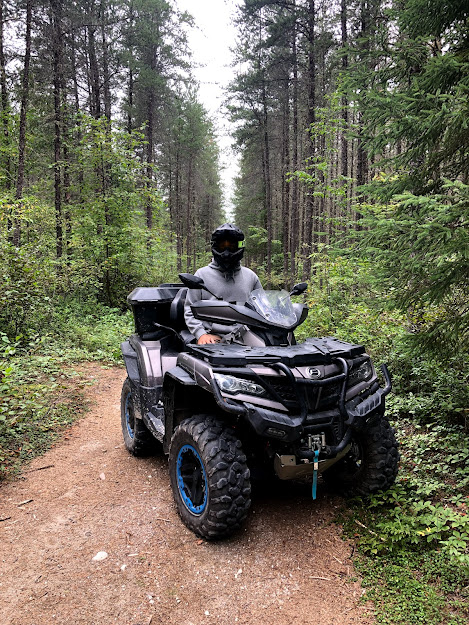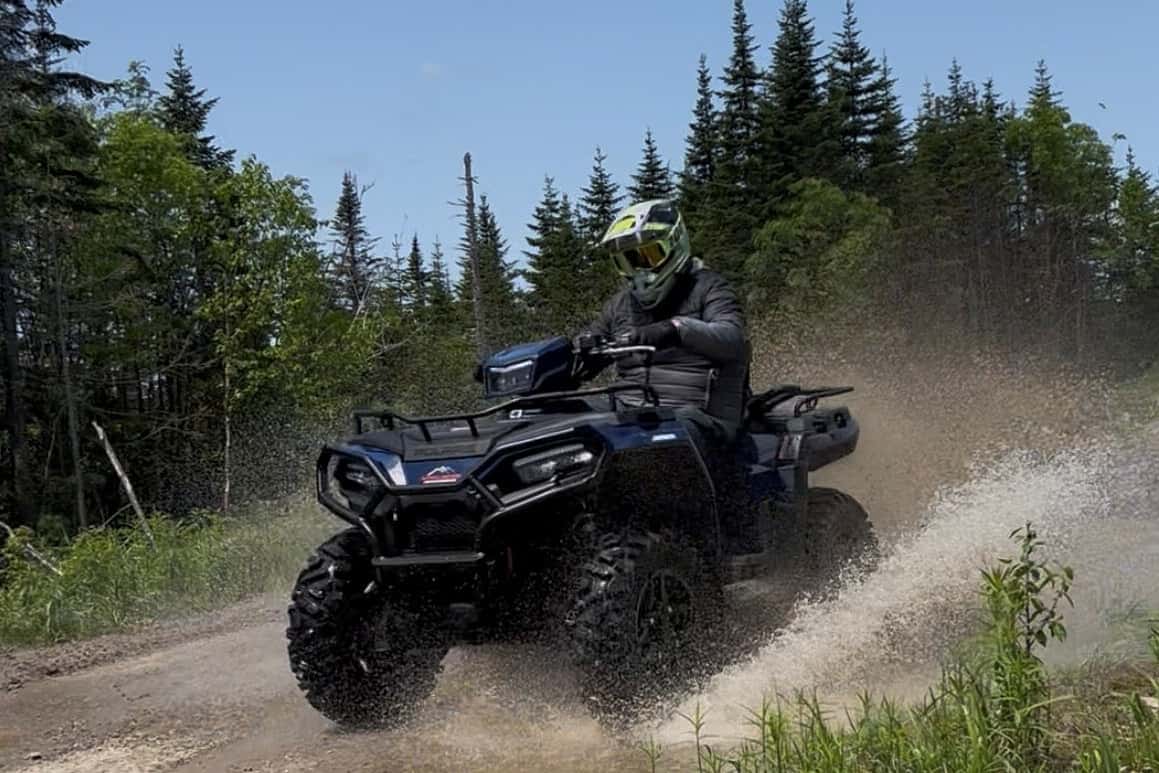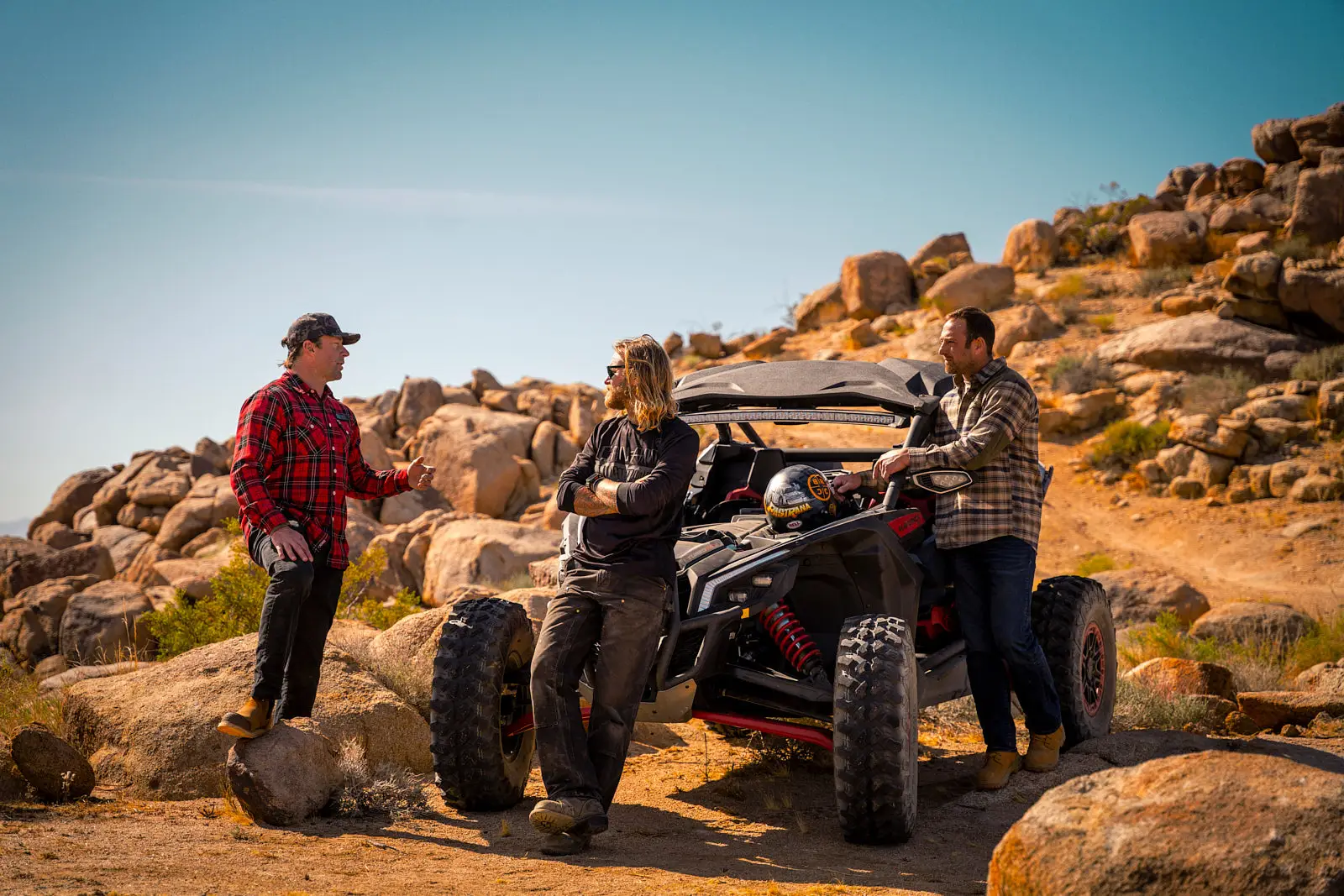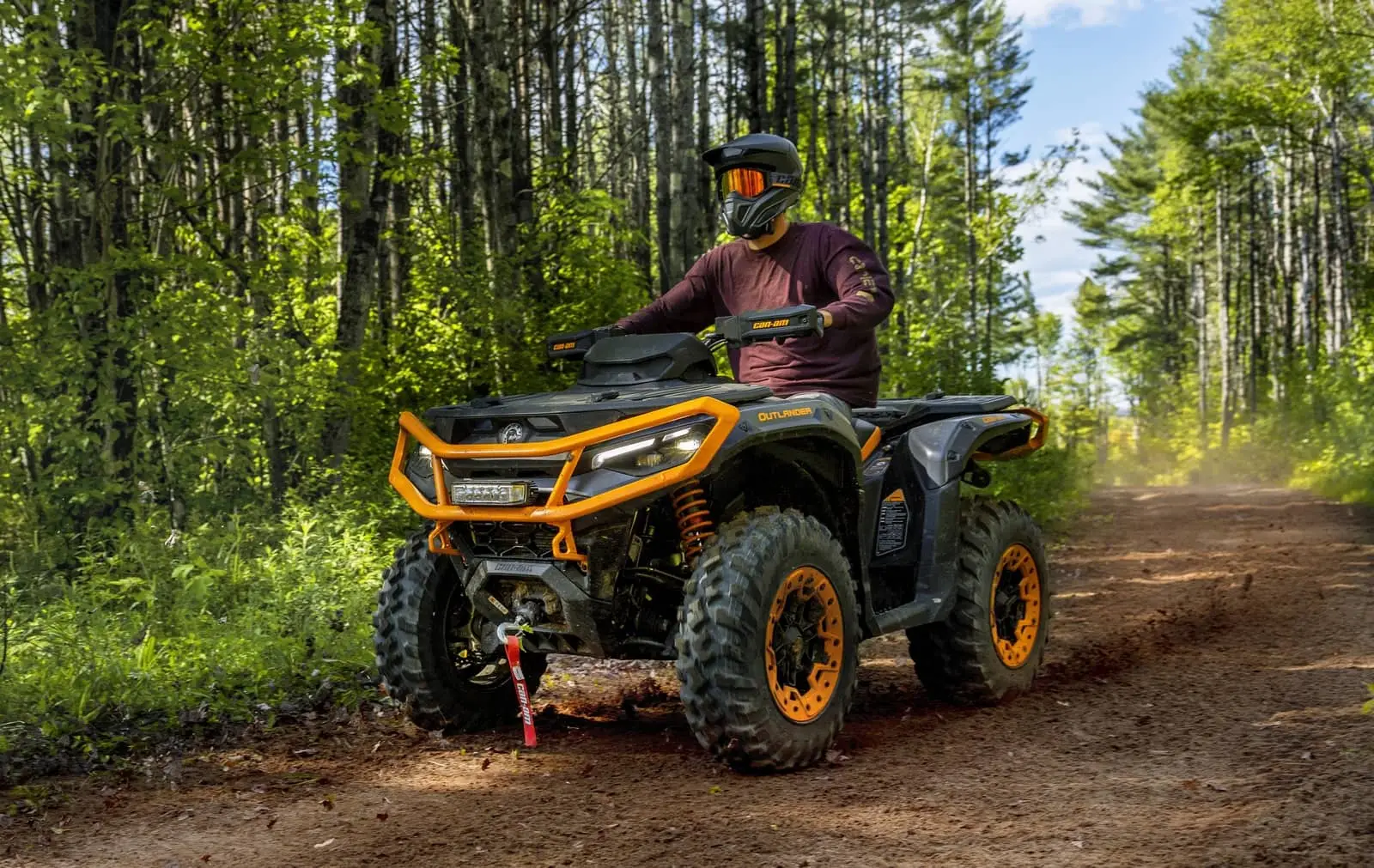In December 2020, a major reform of the Off-Road Vehicle Act (ORVA) was passed.
The last changes were made in 2010 and no longer reflect today’s reality, so we were really due.
The lack of surveillance, the increasingly powerful machines, the lack of experience of the drivers, the non-respect of the rights of access, the modified and non-conforming machines, the alcohol, the drugs, the speed and so on… were some of the problems that were there.
I’ve pulled out the main points of the 50 pages long law document, to summarize what we can expect and what will be the most useful.
Let’s start with the age, the driver’s license to ride a trail and the related training:
– you must be at least 16 years old and have a driver’s license;
– 16 and 17 year olds are also required to have a training certificate;
– To rent an off-road vehicle you must be 18 years old, hold a valid driver’s license and have completed a minimum training period.

We must always have in our possession and be able to produce upon request:
-his or her right of access to the trails
-his or her driver’s license
-His or her certificate of competency;
-His or her registrations;
-Insurance (minimum 1 million for civil liability);
– and a document proving age.
Helmets are mandatory and must be equipped with a visor or glasses for the driver and the passenger. If the passenger is riding in an attached trailer or sled, the visor or goggles are not required. All drivers and passengers must be properly dressed for this sport.
Your ATV must be equipped with a speedometer in good working order (for vehicles built after January 1, 98), a white headlight on permanently at the front and one (or more) required red position light at the rear, well fixed and correctly installed, kept free of any object or material that could obstruct it or make it ineffective. The same applies to the rearview mirror (placed on the left side of the vehicle, properly attached and functional) and the vehicle plate (placed on the left side of the vehicle as close as possible to the rear of the vehicle). If you are carrying a passenger, your ATV must be equipped with a seat built for this purpose and you cannot carry a passenger in front of you. To carry a passenger on an ATV originally designed to carry only one person and modified by adding a seat, you must have a training certificate issued for this purpose (this already exists).
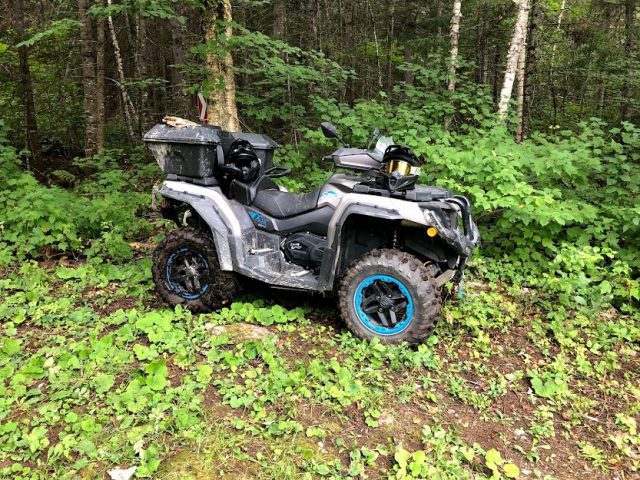
It is forbidden to drive a vehicle that produces excessive noise. No person may modify or cause to be modified the exhaust system. No one may sell or distribute equipment to modify the exhaust system. There are stiff fines for doing so.
To be a guide or offer to guide others, you must have successfully completed the appropriate training.
Do not ride on trails with other uses such as hiking trails. Snowmobile trails are marked with red markers and ATV trails with blue markers. Some portions of the trails are shared by both types of vehicles, but for the most part, each has its own trail.
Therefore, no other vehicles, pedestrians, bicycles, skiers, etc., should be on these trails. An ATV does not go in a snowmobile trail and a snowmobile does not go in an ATV trail, under penalty of punishment.
Also, it is forbidden to go outside of these markers (poles) for obvious reasons, among others because the rights of access are granted only on the marked part and this practice puts our network in danger. Fines are attached to all of this by the way. Stay on the trail.
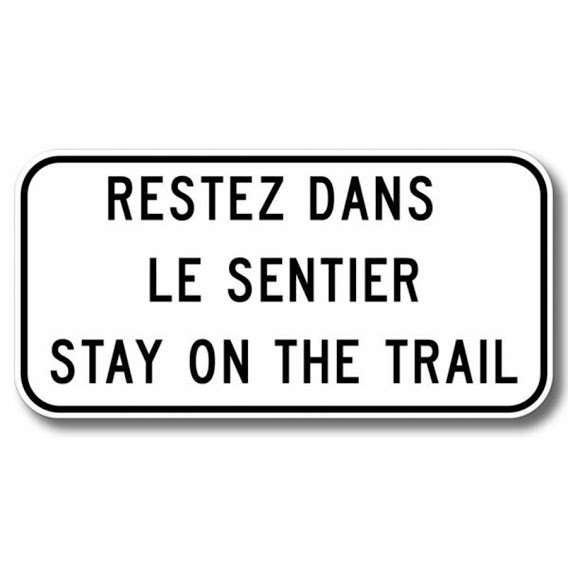
It is forbidden to scare, chase, maim or kill an animal. Throw or abandon any object or waste.
It is mandatory to keep your right and to maintain a sufficient distance from other users. We also have the obligation not to inconvenience other users. The prohibition of damaging a trail is also self-evident.
We must respect the speed limit of 50 km/h unless otherwise stated (30 km/h near homes).
Do not consume alcohol or drugs in these vehicles and do not drive while intoxicated.
It is important to obey all signals and stop orders given by the enforcement officers. The powers of the enforcement officers have been strengthened. Most of the time, they work in conjunction with the police and can issue tickets.
The vast majority of the changes came into effect on December 30, 2020. Some provisions will only come into effect later this year.
The upcoming 2021-2022 season is expected to be completely governed by this law and all related amendments, including certain provisions of the highway safety code, the law on administrative justice and also the law on the ministry of transportation. It will also amend the off-road vehicle regulation and completely replace the old regulations of the off-road vehicle law.
So here’s a quick overview of what you need to do to be in compliance with the law, not only for your safety but also for the survival of motorsports. Let’s hope that this overhaul will give the expected results soon enough.

